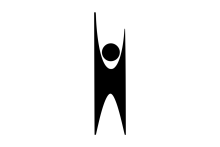imported>TheElectricBomb No edit summary |
imported>TheFedGuy101 No edit summary |
||
| Line 8: | Line 8: | ||
|alignments = [[File:Nonquadrant.png]] [[:Category:Non-Quadrant|Non-Quadrant]]<br> | |alignments = [[File:Nonquadrant.png]] [[:Category:Non-Quadrant|Non-Quadrant]]<br> | ||
[[File:Dem.png]] [[:Category:Democratic|Democratic]] (many)<br> | [[File:Dem.png]] [[:Category:Democratic|Democratic]] (many)<br> | ||
[[File: | [[File:Internation.png]] [[:Category:Internationalists|Internationalists]]<br>[[File:Welf.png]] | ||
[[:Category:Welfarists|Welfarists]] (many)<br> [[File:Cultcenter.png]] [[Culturally Variable]] (In theory) <br> [[File:Prgess.png]] [[:Category:Culturally Left|Culturally Left]] (In practice) | [[:Category:Welfarists|Welfarists]] (many)<br> [[File:Cultcenter.png]] [[Culturally Variable]] (In theory) <br> [[File:Prgess.png]] [[:Category:Culturally Left|Culturally Left]] (In practice) | ||
|theorists = [[File:European Federalism.png]] '''Europe''' {{Collapse| | |theorists = [[File:European Federalism.png]] '''Europe''' {{Collapse| | ||
Revision as of 10:40, 31 January 2023
Humanism is a philosophical stance that emphasizes the value and agency of the human species, both individually and collectively. Humanism is non-dogmatic and open-ended. The meaning of the term humanism has fluctuated according to the successive intellectual movements which have identified with it. Generally, however, humanism is the belief that human beings are the source of meaning and values. Humanists see humanity as having the capacity for continued growth and development, and they affirm some notion of human freedom and progress. Humanism views humanity as responsible for the promotion and development of individuals, espouses the equal and inherent dignity of all human beings, and emphasizes a concern for humans in relation to the world. In practice, humanist philosophy advocates for the equal treatment of all people, regardless of their race, ethnic background, sex, gender, religion, or nationality.
Variants
 Pan-Humanism
Pan-Humanism
Pan-humanism is the concept of an affiliation with the humankind through some sort of legislative structure that allows all technological and economic development to be for the benefit of the people. This co-insides with the idea of a world government, which would serve as a common political authority for all humanity, such as the idea of ![]() World Federalism.
World Federalism.
 Secular Humanism
Secular Humanism
Secular Humanism begins with atheism (absence of belief in a deity) and agnosticism or skepticism (epistemological caution that rejects the transcendent as such due to a lack of evidence). Because no transcendent power will save us, secular humanists maintain that humans must take responsibility for themselves. While atheism is a necessary condition for secular humanism, it is not a sufficient one. Far from living in a moral vacuum, secular humanists “wish to encourage wherever possible the growth of moral awareness and the capacity for free choice and an understanding of the consequences thereof.”
Secular humanism emerges, then, as a comprehensive nonreligious life stance that incorporates a naturalistic philosophy, a cosmic outlook rooted in science, and a consequentialist ethical system.[3]
 Religious Humanism
Religious Humanism
Religious Humanism is a form of humanism that applies humanistic ethical philosophies on religious principles rather than secular principles. Religious humanism is sometimes referred to as non-theistic religion or congregational humanism. Other theistic humanist traditions have arisen over time, such as Christian humanism.
Some Religious Humanist organizations and religions that include significant numbers of members and clergy who identify as humanists:
- The Humanist Society – This organization has its roots in the Quaker tradition but today is not exclusively tied to that tradition
- The Objector Church – Founded in 2018 as an interfaith religious humanist community.
 The Satanic Temple – TST is a non-theistic religion. Its seven tenets espouse humanist values, and the overwhelming majority of TST members identify as humanists.
The Satanic Temple – TST is a non-theistic religion. Its seven tenets espouse humanist values, and the overwhelming majority of TST members identify as humanists. Unitarian Universalists – As many as half or more of UU congregations identify themselves as humanists when surveyed. Humanist UU's are represented by the UU Humanist Association (HUUmanists)
Unitarian Universalists – As many as half or more of UU congregations identify themselves as humanists when surveyed. Humanist UU's are represented by the UU Humanist Association (HUUmanists)- Religious Society of Friends (Quakers) – Groups within the Quaker communities that hold a humanist perspective include Nontheist Friends
- Judaism – see Humanistic Judaism, Reconstructionist Judaism
- Buddhist – see Humanistic Buddhism
 Humanistic Capitalism
Humanistic Capitalism
See:
Social Capitalism
Humanistic Capitalism is a concept that seeks to unite humanism, specifically the safety and health needs of people and the environment, with market forces and a market-based economy. It is often seen as a middle ground between the ideas of modern capitalism and democratic socialism.
 Marxist Humanism
Marxist Humanism
See:
Reformist Marxism
WIP
File:Eco-Hum.png Eco-Humanism
Eco-Humanism is a version of humanism that advocates for environmental ethics. Andrew Brennan was an advocate of ecologic humanism (eco-humanism), the argument that all ontological entities, animate and inanimate, can be given ethical worth purely on the basis that they exist.
History
Proto-Humanism
The origins of Humanism trace back to ancient ![]() Greece. Later on, these ideas moved to
Greece. Later on, these ideas moved to ![]() Rome. The famous philosopher
Rome. The famous philosopher ![]() Socrates spent a lot questioning the religion(s) practiced in ancient Greece. Socrates spent scientific thinking into digging the truth of religion and ethics. Of course, while this angered the local population and the elites, and he was sentenced to death for blasphemy, his systematic questioning lead many of his students such as Plato and
Socrates spent a lot questioning the religion(s) practiced in ancient Greece. Socrates spent scientific thinking into digging the truth of religion and ethics. Of course, while this angered the local population and the elites, and he was sentenced to death for blasphemy, his systematic questioning lead many of his students such as Plato and ![]() Aristotle to take on after him, examining and justifying the truth before we can accept it as a fact. Aristotle had explored a lot of topics about the human being, such as deism, rationality, eudaimonia, etc. He wanted to explore what gave humans potential.
Aristotle to take on after him, examining and justifying the truth before we can accept it as a fact. Aristotle had explored a lot of topics about the human being, such as deism, rationality, eudaimonia, etc. He wanted to explore what gave humans potential.
Humanism was very common in Greek art. It helped create a central focus on anthropologic art.
The Reinassance
The modern founding of Humanism was developed by poet and scholar Francesco Petrarca in the 14th century, who was believed to be the modern founder of the philosophy. While it was founded as a secular movement, Petrarca was very devout to Catholicism.
After his death, Humanism, at the time as "Reinassance Humanism", was defined as a broad cultural movement that revived set of classical texts and ideologies from the.
Criticism of Humanism
Also see:
Anti-Humanism
In the 19th century,
Modern Humanism
W.I.P
Principles
 Egalitarianism: All people come from the same place and need to be treated with fairness and equality. Humanists must actively uphold these standards and seek to help their fellow man.
Egalitarianism: All people come from the same place and need to be treated with fairness and equality. Humanists must actively uphold these standards and seek to help their fellow man.
 Individualism: Humanism supports Individualist beliefs, believing that humans themselves are responible for creating freedom. Humanists advocate the
Individualism: Humanism supports Individualist beliefs, believing that humans themselves are responible for creating freedom. Humanists advocate the  Liberty and self-rights of the individual.
Liberty and self-rights of the individual.
 Secularism: Humanism has always proven itself to be a (usually) secular ideology every time. In fact that is a natural component within. Humanism believes that scientific knowledge and evidence in the real world matters more over the simple belief in "supernatural entities".
Secularism: Humanism has always proven itself to be a (usually) secular ideology every time. In fact that is a natural component within. Humanism believes that scientific knowledge and evidence in the real world matters more over the simple belief in "supernatural entities".
 Welfare: Humanism is moral; morality is a way of humans improving our lives. Humanists engage in practical action to improve personal and social conditions, that through welfare. In fact, many
Welfare: Humanism is moral; morality is a way of humans improving our lives. Humanists engage in practical action to improve personal and social conditions, that through welfare. In fact, many  liberal and
liberal and  welfare ideologies justify this principle upon adapting it to their own policies.
welfare ideologies justify this principle upon adapting it to their own policies.
How to Draw

- Draw a ball
- Fill the ball with white
- Draw a black human shape in the center
- Add the eyes, and you're done!
| Color Name | HEX | RGB | |
|---|---|---|---|
| White | #FFFFFF | 255, 255, 255 | |
| Black | #000000 | 0, 0, 0 | |
Relations
Friends
 Pan-Humanism - Unite humanity!
Pan-Humanism - Unite humanity! Democracy - The majority of humans have the entire power over an country. Based!
Democracy - The majority of humans have the entire power over an country. Based! Laicism - The truth of humanity must come from reality itself. Science, self-thinking, and evidence matter more than religion.
Laicism - The truth of humanity must come from reality itself. Science, self-thinking, and evidence matter more than religion. Athenian Democracy - "About the gods, I am able to know neither that they exist nor that they do not exist nor of what kind they are in form: for many things prevent me from knowing this, its obscurity and the brevity of man's life".
Athenian Democracy - "About the gods, I am able to know neither that they exist nor that they do not exist nor of what kind they are in form: for many things prevent me from knowing this, its obscurity and the brevity of man's life". Alter-Globalization - My based friend wants people to maintain their identity whilst being united with the world.
Alter-Globalization - My based friend wants people to maintain their identity whilst being united with the world. Progressivism - You carry my ideas well!
Progressivism - You carry my ideas well! Feminism - Down with bigotry! Men and women are equal!
Feminism - Down with bigotry! Men and women are equal! Atheistic Satanism (TST) - Humanism with Horns.
Atheistic Satanism (TST) - Humanism with Horns. Social Liberalism - Love you too babe! <3
Social Liberalism - Love you too babe! <3 Socialism with a Human Face - One of the most based socialists! Also nice human face. Wish I had one too.
Socialism with a Human Face - One of the most based socialists! Also nice human face. Wish I had one too. Reformist Marxism - A Marxist who still gets me.
Reformist Marxism - A Marxist who still gets me. Social Capitalism - A capitalist who still gets me.
Social Capitalism - A capitalist who still gets me. Social Democracy - Another, a more moderate leftist who still gets me.
Social Democracy - Another, a more moderate leftist who still gets me. Cosmopolitanism - We should all be putting aside our differences for the betterment of humanity.
Cosmopolitanism - We should all be putting aside our differences for the betterment of humanity. Democratic Transhumanism - Humanity must be improved while our values must be kept.
Democratic Transhumanism - Humanity must be improved while our values must be kept. Welfarism - Every human, regardless of their background, deserves to have their basic needs covered.
Welfarism - Every human, regardless of their background, deserves to have their basic needs covered.
Frenemies
 Marxism - Originally embraced me, but now he calls me bourgeoisie. And your anti-individualist tendencies are really worrying.
Marxism - Originally embraced me, but now he calls me bourgeoisie. And your anti-individualist tendencies are really worrying. State Atheism - Just because I said we should value science doesn't mean I think religions should be completely eradicated. Also, the level of pride you have in not being religious is eerily religion-esque tbh.
State Atheism - Just because I said we should value science doesn't mean I think religions should be completely eradicated. Also, the level of pride you have in not being religious is eerily religion-esque tbh.
Enemies
 Anti-Humanism - I´m not a ″reverse theocracy″ nor an empty figure of speech, and you´re just a misanthropic egoistic edgelord!
Anti-Humanism - I´m not a ″reverse theocracy″ nor an empty figure of speech, and you´re just a misanthropic egoistic edgelord! Voluntary Human Extinction - This is ridiculous.
Voluntary Human Extinction - This is ridiculous. Anarcho-Egoism - Calls me a pious atheist.
Anarcho-Egoism - Calls me a pious atheist. Autocracy - People other than you are important too!
Autocracy - People other than you are important too! Reactionarism - You are everything I loathe. Good grief we had the Enlightenment.
Reactionarism - You are everything I loathe. Good grief we had the Enlightenment. Racial Nationalism - Racism is wrong! We are all humans at the end of the day.
Racial Nationalism - Racism is wrong! We are all humans at the end of the day. Theocracies - Separation of church and state is necessary!
Theocracies - Separation of church and state is necessary! Hive-Mind Collectivism - What are you???
Hive-Mind Collectivism - What are you??? Social Darwinism &
Social Darwinism &  Avaritionism - Stop your misanthropy and infighting!
Avaritionism - Stop your misanthropy and infighting! Ingsoc - This is what happens when human rights are gone...
Ingsoc - This is what happens when human rights are gone... Posadism - Filthy Xeno that wants to nuke humanity.
Posadism - Filthy Xeno that wants to nuke humanity. Deep Ecology - Humanity is NOT equal to
Deep Ecology - Humanity is NOT equal to  animals. Care about them all you want, but do not violate human rights for those purposes.
animals. Care about them all you want, but do not violate human rights for those purposes. Primal Primitivism - Reject humanity return to monke? NO.
Primal Primitivism - Reject humanity return to monke? NO. Post-Humanism - Matrix? Skynet? Roko's Basilisk? Worst nightmare!
Post-Humanism - Matrix? Skynet? Roko's Basilisk? Worst nightmare! Anarcho-Nihilism - Why do you hate humanity so much?
Anarcho-Nihilism - Why do you hate humanity so much?
Further Information
Books/Literature
- The Essence of Christianity by Ludwig Feuerbach
- Humanism and Its Aspirations: The Humanist Manifesto
- The Human Condition by Hannah Arendt
- In Search of Florentine Civic Humanism by Hans Baronand Republican Liberty in an Age of Classicism and Tyranny by Hans Baron
- Humanistic and Political Literature in Florence and Venice at the Beginning of the Quattrocento by Hans Baron
- Studies in Humanistic and Political Literature by Hans Baron
- The Crisis of the Early Italian Renaissance: Civic Humanism
- Leonardo Bruni Aretino. Humanistisch-philosophische Schriften by Hans Baron
Wikipedia
Videos
- What was Humanism? AP Euro Bit by Bit
- What is Renaissance Humanism?
- {https://www.youtube.com/watch?v=ea7msxlhecQ Aristotle on Virtue and Human Nature]
Websites & Online Communities
Gallery
-
Drawn by Duck
-
Drawn by Buni
-
Drawn by Councilguy
-
-
| | |
- ↑ L. Beethoven criticized monarchism and aristocracy in general
- ↑ L. Beethoven greeted the French Revolution
- ↑ https://secularhumanism.org/what-is-secular-humanism/secular-humanism-defined/




